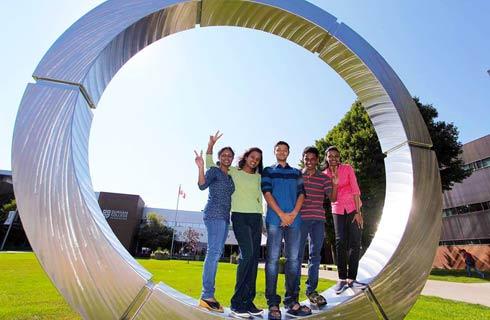生态,进化和海洋生物学文学硕士
Master of Arts in Ecology, Evolution and Marine Biology

学历文凭
Masters Degree

专业院系
Department of Ecology, Evolution and Marine Biology

开学时间

课程时长

课程学费

国际学生入学条件
IDP—雅思考试联合主办方

雅思考试总分
7.0
- 雅思总分:7
- 托福网考总分:80
- 托福笔试总分:550
- 其他语言考试:Duolingo English Test (DET) - 120
CRICOS代码:
申请截止日期: 请与IDP联系 以获取详细信息。
课程简介
The Department of Ecology, Evolution, and Marine Biology at UC Santa Barbara provides broad, interdisciplinary education leading to the Master of Arts, Master of Science, and the Doctor of Philosophy degrees with an emphasis on ecology and evolution, and marine biology and oceanography. The diversity of research interests, perspectives, and expertise within the Department promotes the development of a broad foundation in ecology, evolution, and marine biology, and an appreciation for interdisciplinary approaches to research. It also allows students to develop depth in specific sub-disciplines including population and community ecology, ecosystems ecology, limnology, and biological oceanography, ecological physiology, evolution, population genetics, climate science, and organismal biology. Faculty in the Department apply experimental (both field and laboratory-based) as well as modeling approaches, and there are many opportunities for students to get involved in field work, outreach activities, and teaching.
相关申请
 预科
预科 奖学金
奖学金 实习机会
实习机会 在校学习
在校学习 跨境学习
跨境学习 校园授课-线上开始
校园授课-线上开始 在线/远程学习
在线/远程学习
开学时间&学费
学费信息仅供参考,请与IDP联系以获取详细信息
| 开学时间 | 时长 | 学费 | 地点 |
|---|
学校排名

世界排名52
数据源:
泰晤士高等教育世界大学排名
本校相关课程

教育哲学博士-文化与发展
学历文凭
Ph.D.
开学日期
课程费用总额


环境科学与管理哲学博士
学历文凭
Ph.D.
开学日期
课程费用总额


环境科学与管理硕士
学历文凭
Masters Degree
开学日期
课程费用总额


戏剧研究哲学博士
学历文凭
Ph.D.
开学日期
课程费用总额


戏剧研究文学硕士
学历文凭
Masters Degree
开学日期
课程费用总额


统计与应用概率论哲学博士
学历文凭
Ph.D.
开学日期
课程费用总额

其他相关课程

Bachelor of Science in Biology - Ecology and Evolutionary Biology
 加州州立大学北岭分校
加州州立大学北岭分校学历文凭
Bachelor Degree
开学日期
课程费用总额


Doctor of Philosophy in Ecology and Evolutionary Biology- Infectious Disease
 普林斯顿大学
普林斯顿大学泰晤士高等教育世界大学排名:3
学历文凭
Ph.D.
开学日期
课程费用总额


Doctor of Philosophy in Ecology and Evolution
 罗格斯大学新布朗斯维克分校
罗格斯大学新布朗斯维克分校学历文凭
Ph.D.
开学日期
课程费用总额


Master of Science in Ecology and Evolutionary Biology
 加州大学欧文分校
加州大学欧文分校学历文凭
Masters Degree
开学日期
课程费用总额


生态学理学硕士-气候适应科学
 犹他州立大学
犹他州立大学学历文凭
Masters Degree
开学日期
课程费用总额


Doctor of Philosophy in Biology- Ecology and Evolutionary Biology
 俄克拉荷马大学
俄克拉荷马大学学历文凭
Ph.D.
开学日期
课程费用总额











